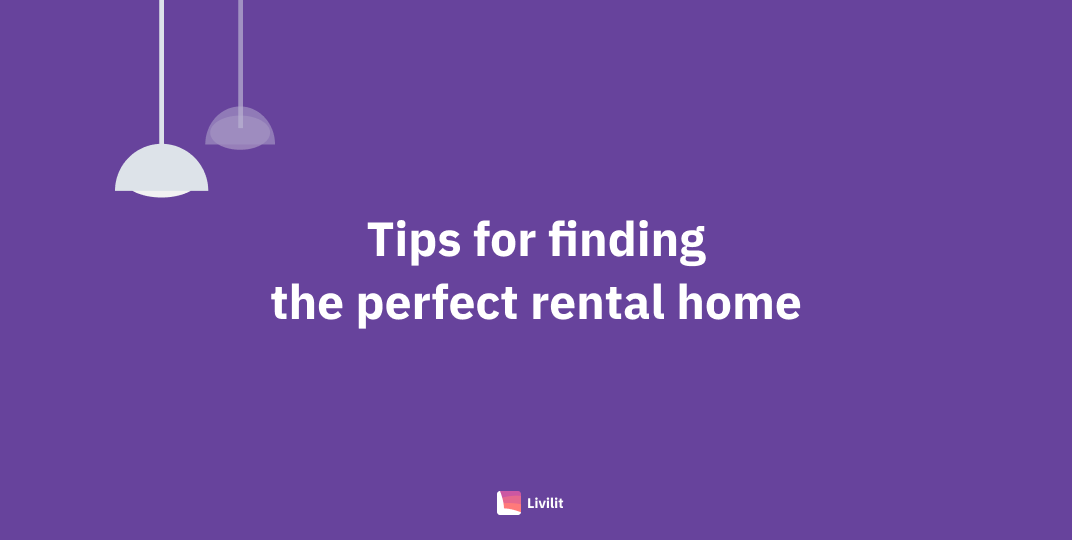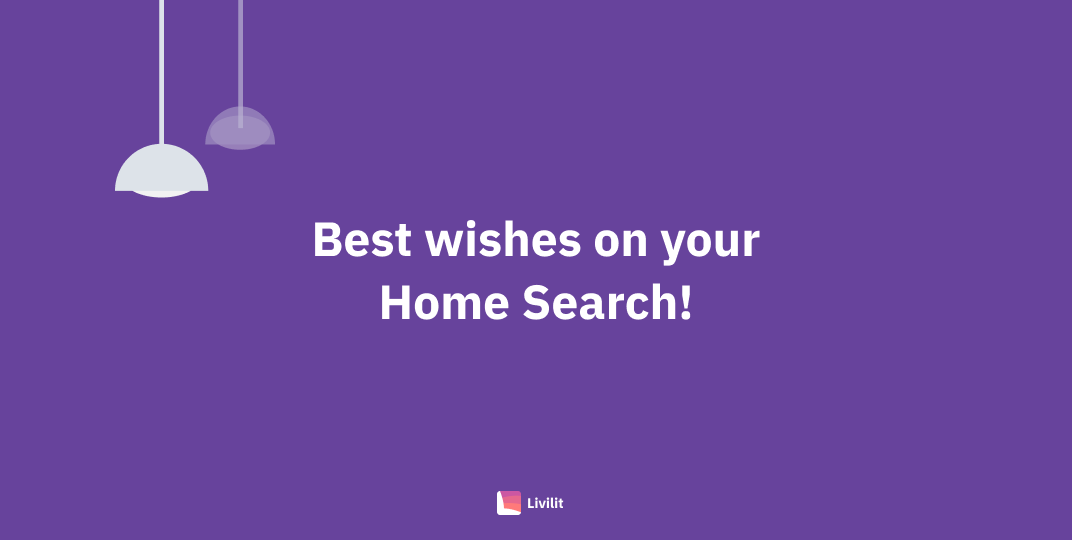Tips for finding the perfect rental home
Finding the perfect rental home can be difficult. If you are new to renting, this blog post will help you find a rental property that you will love.

Blake Sherman

Are you looking to rent a new home, but not sure where to start? The process of finding the perfect rental property can be overwhelming, especially if you're new to the world of rentals. But with a little research and some smart decision-making, you can find a rental that meets your needs and fits your budget. In this blog post, we'll share some expert tips for finding the perfect rental property.
Define Priorities
When searching for a rental home, it's important to have a clear idea of your priorities. This will help you narrow down your options and focus your search on properties that meet your needs. Some potential priorities to consider when searching for a rental home include:
- Location: Where do you want to live? Are you looking for a rental in a particular neighbourhood, city, or region? Consider factors such as proximity to work, schools, public transportation, and amenities.
- Size: How much space do you need? Are you looking for a studio apartment, a one-bedroom, or a larger property? Consider the number of bedrooms and bathrooms, as well as the overall square footage of the rental.
- Price: What is your budget? Be sure to factor in all of your costs, including rent, utilities, insurance, and any other expenses you might incur. Remember that you'll also need to have some money set aside for a security deposit.
- Amenities: What features and amenities are important to you? Are you looking for a rental with a yard, a garage, or a pool? Do you need a pet-friendly rental, or one with wheelchair accessibility? Consider your needs and preferences when looking at potential rentals.
- Lease terms: What are the terms of the lease agreement? How long is the rental contract, and what are the rules for renewing or terminating the lease? Be sure to read the lease agreement carefully and ask any questions you might have before signing.
- Maintenance and repairs: Who is responsible for maintaining the rental property and handling repairs? What is the process for requesting maintenance and repairs, and how long does it typically take for issues to be resolved? Be sure to clarify these details before signing a lease agreement.
- Landlord or property manager: Who will be responsible for managing the rental property? How responsive and professional are they? Be sure to research the landlord or property manager and ask for references before signing a lease agreement.
By considering these and other priorities, you can find a rental home that meets your needs and fits your budget. It's important to take the time to carefully research and compare different properties before making a decision.
Start your search early
Starting your search for a rental home early has several advantages. Here are a few reasons why it's a good idea to start looking for rentals several weeks or even months before you plan to move:
- More options: The rental market can be competitive, and the best properties tend to go quickly. By starting your search early, you'll have more time to compare different properties and look at a wider range of options. This can increase your chances of finding a rental that meets your needs and fits your budget.
- Better negotiation: If you start your search early, you'll have more time to negotiate the terms of your lease agreement. This can be particularly beneficial if you're dealing with a landlord or property manager who is less flexible or less willing to negotiate. By starting early, you can take the time to research the rental market and determine a fair price for the property.
- Avoiding stress: The process of moving can be stressful, and the last thing you want is to be rushed or pressured into making a decision about your rental. By starting your search early, you can take the time to carefully research and compare different properties, and make a decision that you're happy with. This can help reduce stress and make your move a smoother, more enjoyable experience.
- Planning ahead: Starting your search early will also give you plenty of time to plan for your move. You can arrange for utilities to be connected, schedule movers, and make other preparations in advance. This can help ensure that your move goes smoothly and that you're settled in and ready to go on the day you move into your new rental.
Overall, starting your search for a rental home early has many advantages. It can give you more options, better negotiation, and less stress. So, if you're planning to move, be sure to start your search early and take the time to carefully research and compare different properties.
Set a budget
Setting a budget for a rental home lease is an important step in the rental process. It will help you narrow down your options and avoid getting your heart set on a property that's out of your price range. Here are a few steps you can take to set a budget for a rental home lease:
- Determine your income: Start by calculating your monthly income after taxes. Be sure to include all sources of income, such as wages, commissions, bonuses, and investments.
- Calculate your expenses: Next, make a list of your monthly expenses. This should include all of your fixed expenses, such as rent, utilities, insurance, and loan payments. It should also include your variable expenses, such as groceries, transportation, and entertainment.
- Subtract your expenses from your income: Once you have a clear idea of your income and your expenses, subtract your expenses from your income. This will give you an idea of how much money you have available each month to put towards rent.
- Set a budget: Based on the amount of money you have available each month, set a budget for your rental home. Be sure to factor in all of your costs, including rent, utilities, insurance, and any other expenses you might incur. Remember that you'll also need to have some money set aside for a security deposit, which is typically equal to one or two months' rent.
- Review your budget: Finally, review your budget to make sure it's realistic and achievable. Are there any areas where you can cut back on expenses in order to free up more money for rent? Are there any potential expenses that you haven't accounted for? Be sure to adjust your budget as needed to ensure that you can afford the rental you're considering.
By following these steps, you can set a budget for a rental home lease that meets your needs and fits your budget. Be sure to review your budget regularly and make adjustments as needed in order to stay on track.
Explore different platforms
There are many different platforms you can use to search for a rental home. Some of the best platforms for finding rental properties include:
- Online rental platforms: Online rental platforms, such as Zillow, Apartments.com, and Realtor.com, allow you to search for rentals in your area using a variety of filters, such as location, price, size, and amenities. These platforms often have a large inventory of rental properties, and they allow you to view listings, photos, and other details online.
- Rental agents: Rental agents, also known as real estate agents, can help you find rental properties in your area. They have access to a wide range of listings and can help you narrow down your options based on your needs and preferences. Rental agents can also help you negotiate the terms of your lease agreement and provide valuable advice and guidance throughout the rental process.
- Classified ads: Local newspapers, as well as online classified ad platforms such as Craigslist, often have listings for rental properties. These listings can be a good source of information, but be sure to do your research and be cautious when dealing with potential landlords or property managers.
- Social media: Social media platforms, such as Facebook and Twitter, can also be a valuable resource for finding rental properties. Many landlords and property managers use social media to advertise their rentals, and you may be able to find listings by searching for relevant hashtags or joining rental-related groups or communities.
Overall, there are many different platforms you can use to search for a rental home. Explore your options and consider using multiple platforms to find the best rental properties in your area.
Inspect the property
When inspecting a property for renting, it's important to take the time to carefully evaluate the property and look for any potential red flags. Here are a few things to look for when inspecting a rental property:
- Structural issues: Look for any signs of damage or wear and tear on the property. This could include cracked or peeling paint, water damage, or loose tiles. Be sure to check the roof, the foundation, and any other structural elements of the property to ensure that they are in good condition.
- Pest infestations: Look for any evidence of pests, such as mice, cockroaches, or termites. This could include droppings, nests, or other signs of infestation. Be sure to check the attic, the basement, and any other areas where pests might be hiding.
- Safety hazards: Look for any potential safety hazards on the property. This could include loose railings, exposed wiring, or fire hazards. Be sure to check the smoke detectors and fire extinguishers to ensure that they are in good working order.
- Appliances and fixtures: Check the appliances and fixtures in the property to ensure that they are in good working order. This could include the refrigerator, the stove, the furnace, and the plumbing. Be sure to turn on the appliances and fixtures to test them and look for any potential issues.
- Neighborhood and surroundings: Take the time to explore the neighborhood and the surrounding area. This will give you a sense of the community and the environment in which you'll be living. Be sure to check for noise levels, traffic, and other factors that might affect your enjoyment of the property.
Overall, when inspecting a rental property, it's important to look for any potential red flags and be thorough in your evaluation. By taking the time to carefully inspect the property, you can make a well-informed decision and avoid potential issues down the road.
Be patient and keep searching
Finally, trust your instincts. If a rental property doesn't feel right to you, or if the landlord or property manager seems unprofessional or unreliable, it's probably best to keep looking. Finding the perfect rental home takes time and patience, but it's well worth the effort to end up in a rental that you love.
In conclusion, finding the perfect rental home can be a challenging process, but with a little research and some smart decision-making, you can find a rental that meets your needs and fits your budget. By defining your priorities, starting your search early, setting a budget, exploring your options, and carefully inspecting potential rentals, you can find the perfect rental home and make your move a success. Remember to trust your instincts and be patient – finding the perfect rental home takes time, but it's worth the effort.
